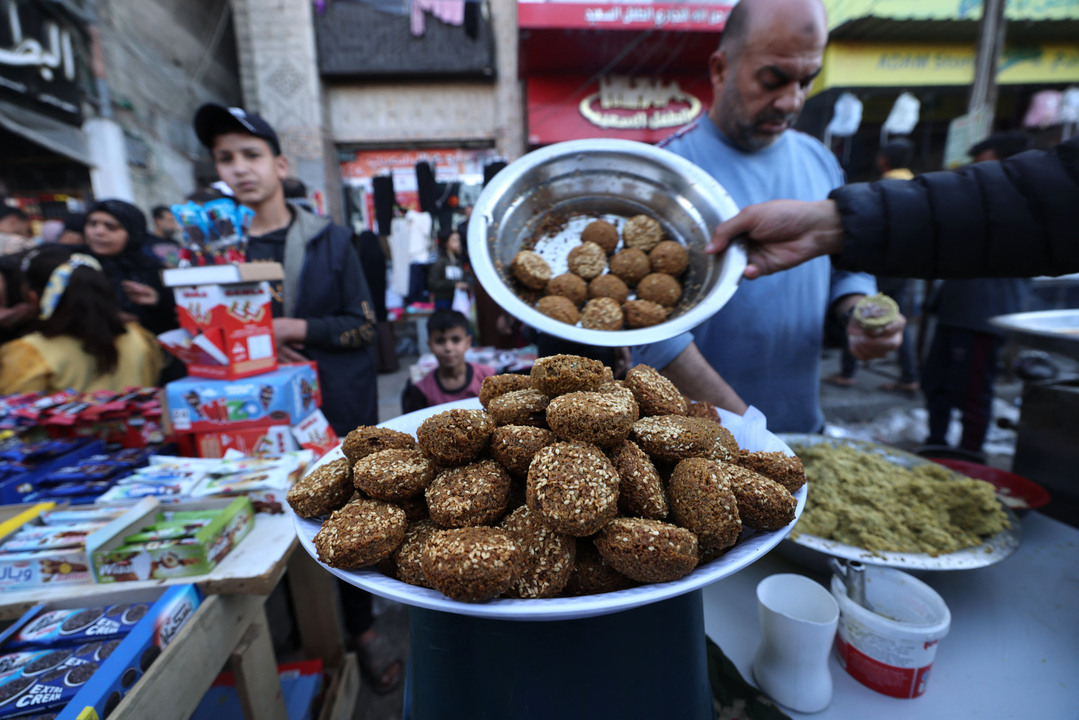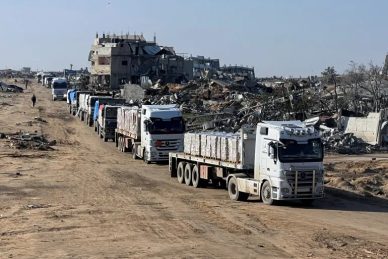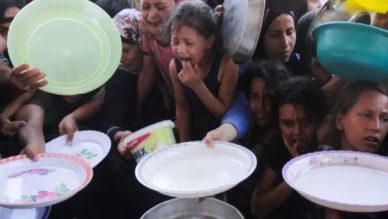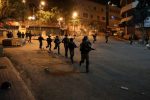GAZA, (PIC)
As Ramadan reaches its midpoint, the people of Gaza are enduring one of the most severe living crises in their history. The continued closure of the Kerem Shalom crossing has led to a dire shortage of essential food supplies and skyrocketing prices, leaving thousands of families unable to meet even their most basic daily needs.
In the past, iftar tables in Gaza were filled with meat, chicken, and fresh vegetables. Today, however, falafel has become the main dish, as buying meat has become an unattainable dream for most families due to its disappearance from markets.
“Only falafel is left!”
Under a makeshift canopy in the bustling Sheikh Radwan market, Abu Ahmed Salim, a man in his fifties, waits patiently in line at a falafel cart.
With a sigh, he says, “We used to buy a kilo of meat during Ramadan, but now, we can barely afford a falafel sandwich. A kilo of meat costs 100 shekels—where can we get that kind of money? Falafel is our last option.”
Umm Khaled Al-Astal, a mother of five, confirms that her family has not had meat on their iftar table for weeks.
“We had hoped Ramadan would be different, but things have only gotten worse. Even chicken is unavailable, and whatever remains is outrageously expensive. Falafel is all we can find—we eat it for both iftar and suhoor.”
Soaring prices and a struggling market
Gaza’s markets have come to a near standstill. Many essential goods have vanished, while the prices of what remains have surged to unprecedented levels. The price of a kilo of sugar has reached 15 shekels, rice 20 shekels, and vegetable oils have doubled in price, making even the most basic meals a financial burden.
Mohammed Abdel Rahman, who owns a grocery store in Gaza’s Al-Zawiya market, describes the grim situation: “People come to ask about prices and leave without buying anything. A carton of eggs now costs 80 shekels—who can afford that? The siege has destroyed trade and stripped people of their most basic rights.”
Even falafel vendors, despite seeing a surge in demand, are struggling to keep up. The shortage of ingredients and rising production costs are taking a toll.
Abu Samer, who runs a falafel shop in the Al-Rimal neighborhood, explains: “Falafel has become the meal of both the rich and the poor. But even we are struggling—oil is expensive, tahini is expensive, and the price of legumes has gone up. If this continues, there may come a day when even falafel disappears!”
“Will we find food tomorrow?”
With the border crossings still closed, life in Gaza feels like an unending nightmare. Humanitarian organizations are warning of a looming food disaster, while families are left wondering, “What will we eat tomorrow?”
Abu Mahmoud Nasr, a man in his sixties, sums up the hardship in a few words: “The siege has taken everything from us—food, work, life itself. The question is no longer about what to eat, but whether we’ll find anything to eat at all.”
As the food crisis continues to deepen, Gaza’s iftar tables stand as a painful reminder of a people living under siege.














